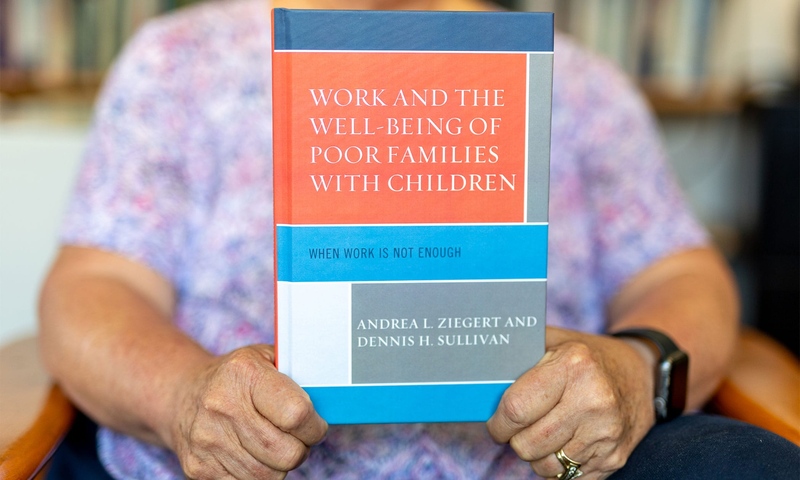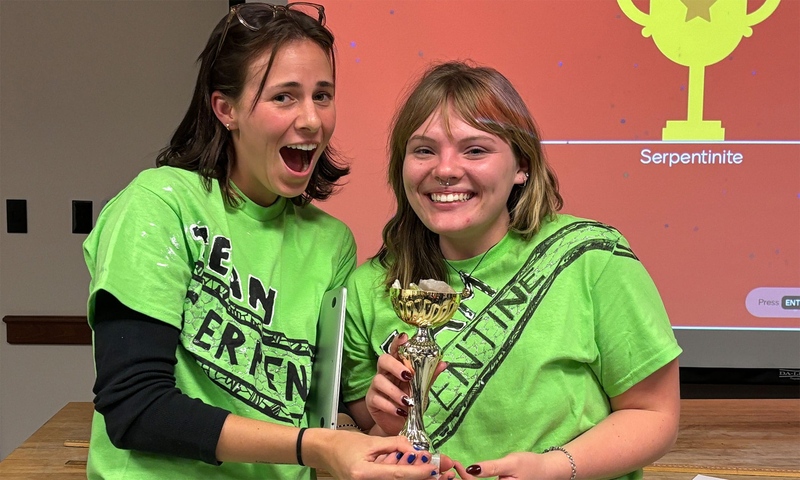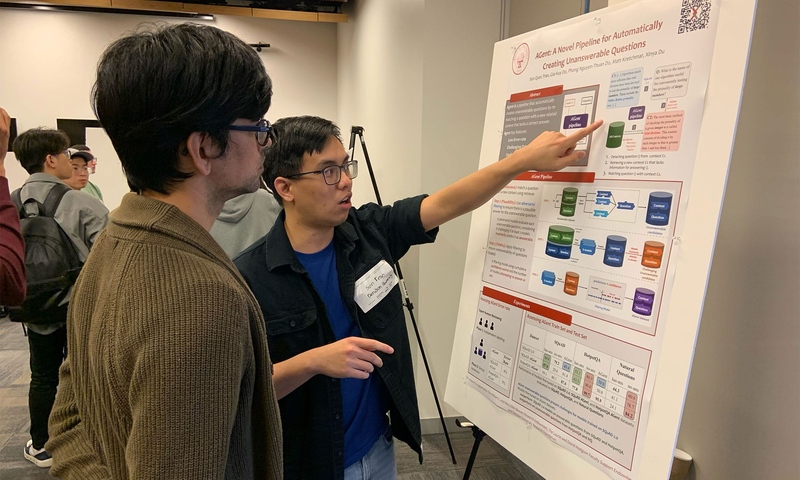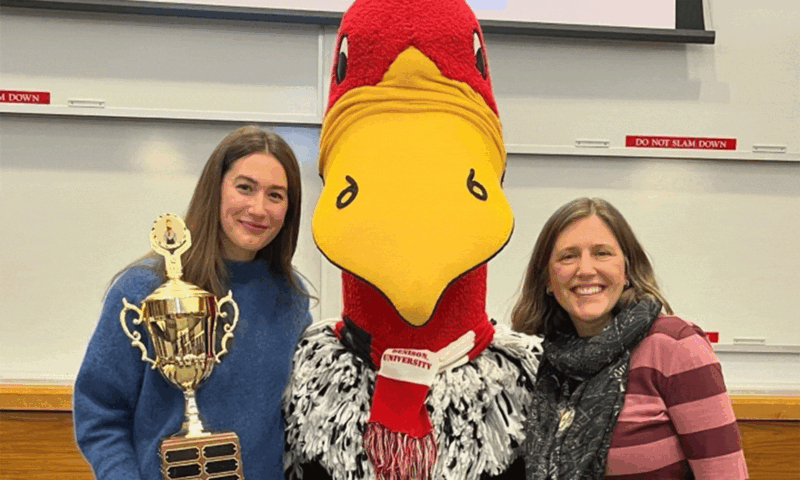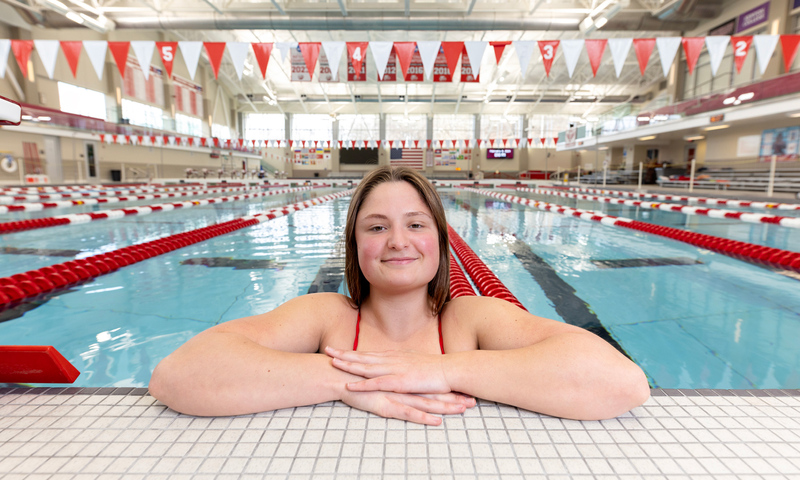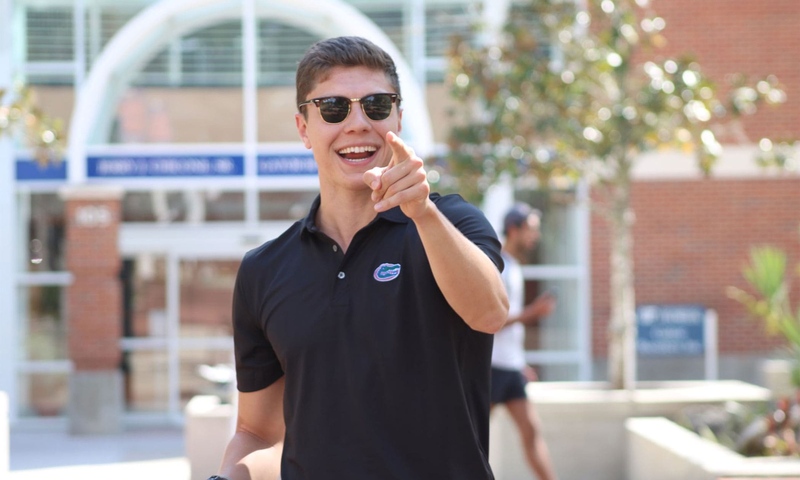This is the place where students have the chance to pause in the limitless breadth of their education. This is where they can find some time and space to look really deeply into a topic or an experience that holds their interest, possibly their future. The Summer Scholars program is a chance to set aside distractions and investigate something finite in close focus, whether it's a damselfly, a molecule, the nuance of a Chinese character, or the lyrics of a song.
Coordinated through the Lisska Center for Scholarly Engagement, the program funds a ten-week summer of research, whether full-time collaborative research with a professor or independent research with close supervision, in any academic field including the arts, humanities, or sciences.
The program is a rigorous experience from start to finish, beginning with writing a proposal to be reviewed for approval by a faculty committee. “The application narrative is as critical as the actual project and the final presentation,” says Joan Krone, Associate Director of the Lisska Center and professor of mathematics and computer science. “The review process in itself is an important part of learning how to do serious academic research.”
Margot Singer, Director of the Lisska Center, notes that “It has to be original research. The students have to propose their own distinct piece, where they have a question they need to answer.” Singer, also Director of Creative Writing in the English department, has worked with applicants on proposals for writing projects from novels to poetry. “When I supervise students, I work intensely with them as they put together their proposal, and we go in for the review together.”
“Students in the program meet with their advisors at least twice a week, and those in a science field typically see their faculty sponsors on a daily basis,” Krone says, adding that every Wednesday evening, a meal is provided for summer researchers and their mentors. During that time, students volunteer to give five-minute talks about their work. “The idea is to present the research in a way that will be understandable to everyone, not just those in the particular field.”
With only a hundred or so students on campus, program leaders make sure there are chances to do more than work, though conversations naturally come back to research topics, both their findings and frustrations.
Besides organizing meals together, “symphony concerts in Columbus and impromptu volleyball tournaments are examples of some of the more purely recreational activities,” says Cookie Sunkle of the Lisska Center. “We try to help them form a sense of community — not just doing their research and going back to their rooms. We also want them to be out there discussing what they’re learning and telling other students about it.”
The summer scholar experience is often a key step toward approaching a senior research project, an undertaking required for some department majors — in many cases it has helped students refine or even discover their topics in advance of that senior project.
“Students use the experience as a springboard into their senior research,” comments Sunkle, “and in some cases the department might approve the summer research as the first semester of a year-long project, which the students could finish in the fall so they're done before spring semester.”
“A number of our students go on to present at national conferences in different fields,” says Singer, “and some are published in academic journals.”The experience of this level of research can look very impressive on a graduate school application as well as a job résumé. But most important is the experience of learning the discipline of thoughtful, rigorous, and creative research.
“It's always the case that after I've had a student in the summer, he's a better student in the fall.”
“The summer program is probably the best thing we do at Denison. And for me, it's probably the most rewarding,” says Religion Professor David Woodyard '54. “You can have more impact on the way in which a student understands the material, and represents his writing.”
“It's always the case that after I've had a student in the summer, he's a better student in the fall. It's really transformative, more so than anything else we do here.”
